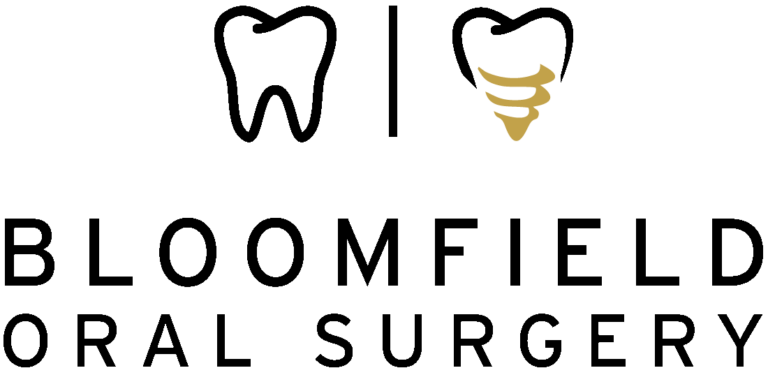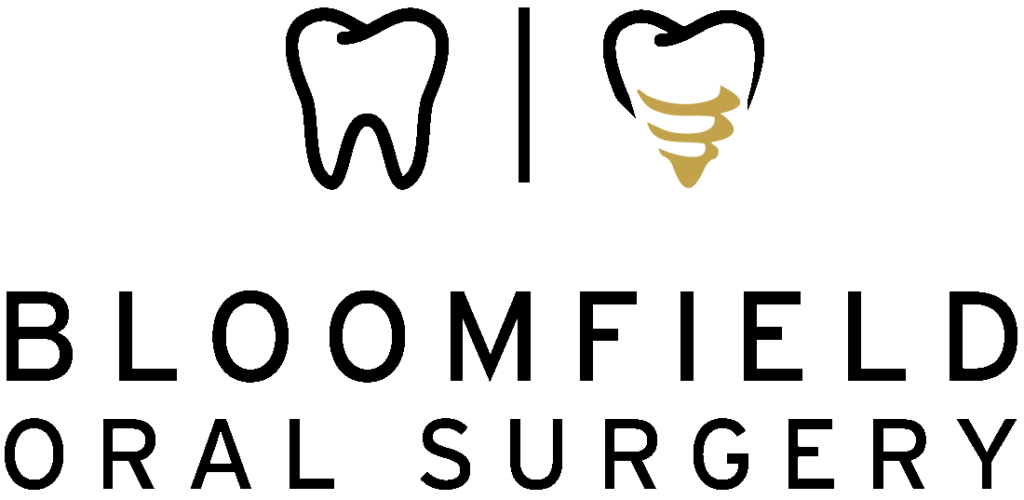Located in the heart of Bloomfield Hills, MI, Bloomfield Oral Surgery offers comprehensive dental and oral surgery services. One of our most common procedures is wisdom teeth extractions. This process is essential for many individuals to ensure their overall dental health and prevent potential complications. In this guide, you’ll understand why wisdom teeth extractions are essential, the symptoms you might experience, the process, and the aftercare.
Symptoms
Wisdom teeth, also known as third molars, typically emerge in one’s late teens or early twenties. Not everyone needs to have them removed, but certain symptoms can indicate the necessity of an extraction:
- Pain or discomfort at the back of the mouth.
- Swelling or tenderness in the gums around the emerging tooth.
- Difficulty opening the mouth or biting down.
- Bad breath or an unpleasant taste in the mouth, which may indicate infection.
- Cysts or tumors forming around the impacted tooth.
Why This is Needed
The necessity for wisdom teeth extractions often arises from several common dental concerns. One of the primary reasons is the lack of adequate space in the mouth for the teeth to emerge correctly, which can lead to impaction. Additionally, if the teeth are emerging at an undesirable angle, they pose a risk of damaging the adjacent tooth.
Patients frequently seek extractions when they experience chronic pain or discomfort associated with their wisdom teeth. There are also heightened concerns when there’s a potential risk of cyst or tumor formation around an impacted tooth. Furthermore, the development of decay or gum disease can occur due to the challenges in adequately cleaning the area surrounding the wisdom teeth, further emphasizing the importance of considering an extraction. Your general dentist or orthodontist may also refer you for wisdom teeth extraction as part of your overall treatment plan.
Treatment Process
Dr. Forgach and Dr. Lehal employ a systematic approach to wisdom teeth extraction to ensure patient safety and comfort. The process typically involves:
- Consultation: The initial step involves a comprehensive examination, including X-rays, to assess the position of the wisdom teeth and any potential complications.
- Preparation: Before the procedure, you’ll receive instructions regarding eating, drinking, and medications. Depending on your individual needs, a local anesthetic, sedation, or general anesthesia may be administered.
- Extraction: A small incision is made in the gum to access the tooth. If the tooth is impacted, it might be divided into sections for easier removal. The area is then cleaned, and the incision is stitched up if necessary.
- Recovery: After the procedure, you’ll receive aftercare instructions. Recovery typically involves managing swelling, pain, and ensuring the extraction site remains clean.
Proactive Measures
Prevention is pivotal in managing potential complications related to wisdom teeth. Although it’s not always possible to prevent the need for wisdom teeth extractions, consistent dental check-ups are instrumental in monitoring the growth and positioning of these teeth.
By attending regular examinations, potential issues can be identified at an early stage. With their expertise and thorough assessments, Dr. Forgach and Dr. Lehal are well-equipped to advise patients on the most suitable course of action. Early intervention and expert guidance can, in many cases, reduce the risk of complications linked to wisdom teeth.
Next Steps for a Smooth Recovery
Navigating the post-operative phase after a wisdom teeth extraction is crucial for long-term dental health. For the vast majority of individuals, this recovery phase unfolds without significant hurdles. The key to this smooth transition is a rigorous commitment to dental professionals’ aftercare guidelines. These guidelines, tailored to individual needs, encompass everything from diet restrictions to oral hygiene practices, ensuring that the extraction site heals properly and promptly.
Regular follow-up visits play a pivotal role in monitoring the healing process. These appointments allow professionals to assess the recovery progress, address any minor concerns before they escalate, and offer peace of mind to patients. As the healing concludes, the benefits become evident. The persistent discomfort, swelling, and other symptoms that might have been a constant source of distress before the extraction gradually fade away. By taking these proactive steps, patients ensure their current well-being and lay the groundwork for lasting oral health.
Frequently Asked Questions
Why might I need a wisdom teeth extraction?
Wisdom teeth extraction may be necessary due to impaction, the teeth emerging at an incorrect angle, chronic pain, potential cyst or tumor formation, or difficulties in cleaning leading to decay or gum disease. Your general dentist or orthodontist may also refer you for wisdom teeth extraction as part of your overall treatment plan.
How long is the recovery process after wisdom teeth extraction?
Most patients recover within a few days, but it’s essential to follow all aftercare instructions provided by Dr. Forgach and Dr. Lehal. Activities may need to be limited for up to a week, and patients should attend follow-up appointments to ensure proper healing.
What anesthesia options are available during the extraction procedure?
At Bloomfield Oral Surgery, we offer local anesthetic, sedation, or general anesthesia, depending on the complexity of the extraction and the patient’s comfort and needs. We ensure a comfortable experience during the entire procedure.
Secure Your Dental Health: Act Now
Ensuring the health and well-being of your teeth is paramount. If you suspect issues with your wisdom teeth or have any of the symptoms listed above, don’t wait. Reach out to the dedicated team at Bloomfield Oral Surgery and schedule your consultation with Dr. Forgach or Dr. Lehal today. Your dental health is our top priority.


